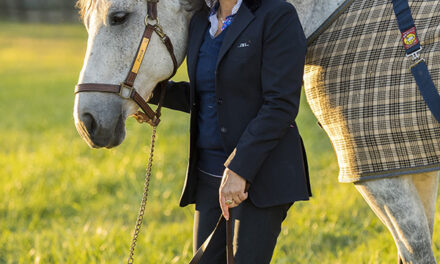A message from the American Horse Council: USDA Must Stop Threat of African Horse Sickness!
USDA’s Animal Plant and Health Inspection Service (APHIS) is soliciting comments from the public related to its proposed list of pests and diseases that pose a high risk to agriculture. The 2018 farm bill authorizes USDA to compile a list of major diseases, so long as it is “likely to pose a significant risk to the food and agricultural critical infrastructure.” As a member of the horse industry, you have the opportunity to make your voice heard by contacting USDA and alerting federal regulators about the dangers of African Horse Sickness, a disease long underestimated by the agency. To make the greatest impact on USDA’s decision-making, we urge you to submit your letter as soon as possible, and “stack” the docket with pro-horse industry comments!
Here is a suggested comment you can use or adapt. Send to: APHISPestDiseaseList@usda.gov
As a member of the United States equine industry, I urge the U.S. Department of Agriculture’s (USDA) Animal and Plant Health Inspection Service (APHIS) to include African Horse Sickness (AHS) on the proposed list of pests and diseases of concern that are likely to pose a high risk to U.S. agriculture. AHS clearly fits the farm bill definition of a disease that is “likely to pose a significant risk to the food and agricultural critical infrastructure sector” and has not adequately been prepared for within the United States or the USDA.
There is a critical need for the USDA to develop comprehensive response plans to ensure federal and state governments are prepared to respond to an AHS outbreak and the international ramifications of such an outbreak on all live animal exports. The ubiquitous presence of insects in the United Sates able to transmit AHS will make the immediate response to AHS detection critical to controlling the spread of the disease.This feat will be impossible without preparation.A March 2020 outbreak in Thailand killed 5% of the country’s horse population in 30 days and required a response by neighboring Cambodia. It continues to require vaccination of thousands of animals in affected zones. American losses would be historic in the face of AHS because the equine population is completely unexposed to the disease. APHIS Veterinary Services (VS) placed restrictions on the importation of equines from Thailand, based on the diagnosis of AHS in multiple equine species of different ages and sexes. If US livestock producers were faced with the same restrictions after AHS introduction, billions of dollars would be lost, not including animal losses or domestic travel restriction implications.
African Horse Sickness is a serious threat to American horses and interstate commerce. I hope you will show this threat the respect it is due by adding it to the USDA’s proposed list of pests and diseases that are likely to pose a high risk to U.S. animal health and commerce.











